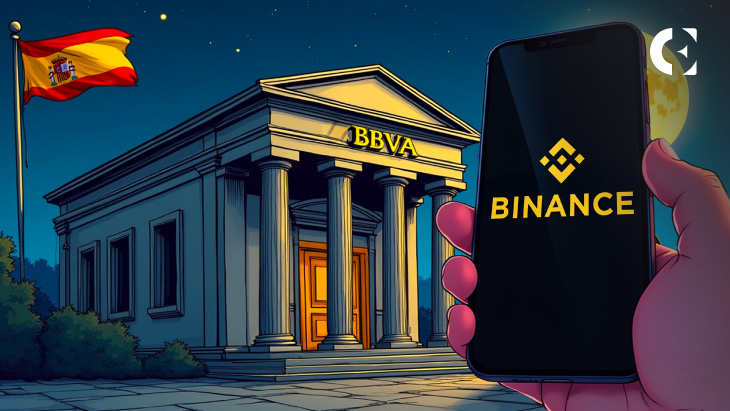- BBVA has become an independent custodian for Binance, offering users greater asset security.
- The Spanish bank holds trader assets in the US Treasuries to mitigate exchange risk.
- Partnership addresses investor concerns after the FTX collapse in late 2022.
Binance has secured Spanish bank BBVA as an independent custodian for customer assets. The partnership allows Binance customers to hold their cryptocurrency assets with the third-largest Spanish bank rather than directly on the exchange platform.
As per the FT, the custody arrangement comes as cryptocurrency exchanges work to address investor fears about trading venue security following the FTX collapse in late 2022. Sam Bankman-Fried’s exchange failure left customer funds trapped in bankruptcy proceedings, prompting traders to seek independent custody solutions away from exchange platforms.
BBVA Provides Enhanced Due Diligence Credibility
Sources familiar with the arrangement indicate that BBVA offers greater name recognition compared to Binance’s existing custody partners. The bank’s reputation simplifies due diligence processes for institutional investors evaluating whether to use Binance’s trading services.
Under the custody structure, trader assets are held by BBVA in US Treasury securities, which Binance accepts as margin for trading activities on its platform. This arrangement aims to mitigate risks associated with potential exchange failures while maintaining trading functionality.
The partnership builds on Binance’s previous efforts to offer independent custody options through Switzerland’s Sygnum and FlowBank following customer pressure in early 2024. These alternatives replaced exclusive reliance on Ceffu, which US officials previously described as a mysterious Binance-related entity.
Traditional Banking Sector Embraces Cryptocurrency Services
BBVA’s tie-up with Binance is one of the growing mainstream banks participation in cryptocurrency markets. The Spanish bank has recently launched Bitcoin and Ethereum trading services through its mobile banking app for local clients.
The bank also directed private banking clients to invest up to 7% of their investment portfolios in cryptocurrency holdings. Traditional lenders are increasingly engaging with digital assets, spurred by clearer regulatory frameworks in both the European Union and the United States. Banks that were previously hesitant about digital asset exposure are now designing end-to-end cryptocurrency service offerings.
Exchange Risk Mitigation Solves Industry Problems
The custody partnership addresses structural risks in cryptocurrency exchange companies where platforms serve several functions, like trading venue, custodian, and lending services. This role concentration has been criticized by observers in the industry as bringing systemic risks.
Independent custody arrangements separate the custody of assets from trading, reducing counterparty risk for customers who still retain trading privileges while their positions are guaranteed by sound financial institutions. That structure provides insurance against exchange-specific operational failure.
The FTX collapse illustrated the way exchange failures can trap customer funds for months or longer via bankruptcy procedures. Independent custody models aim to protect customer holdings from exchange operational risk while preserving trading capability.
Related: Binance CEO: From ‘Scam’ to ‘Next Big Thing’—How Institutions Flipped on Crypto
Disclaimer: The information presented in this article is for informational and educational purposes only. The article does not constitute financial advice or advice of any kind. Coin Edition is not responsible for any losses incurred as a result of the utilization of content, products, or services mentioned. Readers are advised to exercise caution before taking any action related to the company.







